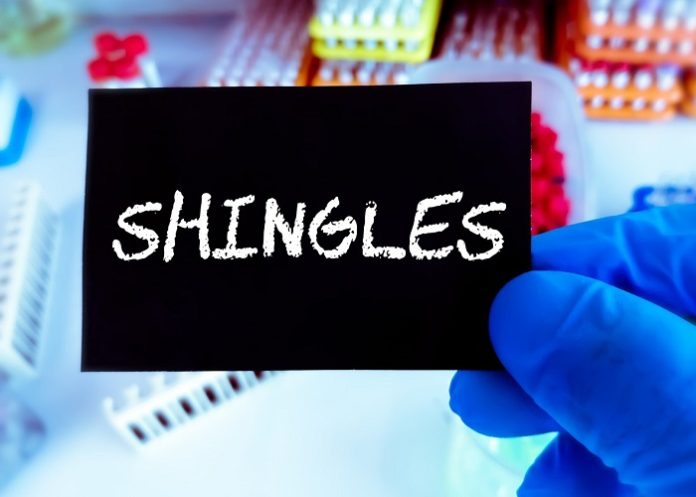Having shingles increased the risk of major adverse cardiovascular events (MACE) like vascular dementia, heart attack, stroke and death by roughly a quarter – but people who received the recombinant vaccine before developing shingles saw their risks of those outcomes drop by up to half.
Medpage Today reports that among more than 174 000 people, aged 50 or older, those who developed a herpes zoster infection were 20% more likely to have a heart attack, 27% more likely to have a stroke, and up to 30% more likely to die than people who didn't develop shingles, according to Ali Dehghani, DO, of Case Western Reserve University in Cleveland.
“Zoster infection has been viewed as just a simple rash that affects older adults,” Dehghani said in before the start of IDWeek (19-22 October) annual meeting in Georgia, on Sunday.
IDWeek is the joint annual meeting of the Infectious Diseases Society of America, the Society for Healthcare Epidemiology of America, the HIV Medicine Association, the Paediatric Infectious Diseases Society and the Society of Infectious Diseases Pharmacists.
“But people who developed shingles were found to have higher rates of heart attack, stroke, blood clots, and dementia, especially vascular dementia, and death over the next five years,” added Dehghani.
Shingles vaccination flipped the risks. Vaccinated adults (aged ≥50) who later developed a first-time case of shingles, had a 25% lower risk of heart attacks and strokes, a 27% lower risk of blood clots, a 50% lower risk of vascular dementia, and a 21% lower risk of death during a period of 1.5-3.5 years after their first vaccine dose.
“Shingles is more than just a rash – it seems to perturb the body in a way that puts the heart and the brain at serious risk,” Dehghani said. “The virus can inflame blood vessels and raise the risk of clots and strokes. Think of it as a smouldering inflammation after an infection that can last for years.”
Vaccination appears to calm that inflammatory process significantly, he added, and its effect seems to last for years.
While the large retrospective study focused on reactivated varicella-zoster virus that led to herpes zoster rashes, Dehghani said there is a possibility that zoster may be active in many patients, especially immunodeficient patients, without progressing into a rash.
Regardless of whether a patient develops a rash or not, “the vaccine seems to quell that viral activity in the first place”, he noted.
The researchers analysed health records from people in 107 US health systems. Participants had no history of prior shingles infections, MACE, or dementia signals before developing shingles.
They compared the post-shingles outcomes of people who received the recombinant shingles vaccine with those of people who received only the pneumococcal vaccine, matching patients for comorbidities such as hypertension, high cholesterol, diabetes, and age.
The findings reinforce recent research showing dementia risk reductions with vaccination.
A study in Wales demonstrated that the live-attenuated zoster vaccine reduced the relative risk of a new dementia diagnosis by 20% over a seven-year period.
A US study found that adults who predominantly received the recombinant herpes zoster vaccine had a 17% increase in time without a dementia diagnosis, compared with those who received the live vaccine.
See more from MedicalBrief archives:
Shingles jab may cut heart attack, stroke risk – global review
Contracting shingles doubles stroke and heart attack risk
Shingles and statins findings a ‘significant’ boost in dementia fight

